Hello, lifelong learners, educators, and tech enthusiasts! Today, we’re about to embark on an enlightening exploration into the universe of education and lifelong learning in the Age of Web 3.0. Fasten your seatbelts as we unravel how this exciting digital landscape is reshaping learning as we know it.
Welcome to the Age of Web 3.0
For the unacquainted, let’s quickly break down what we mean by Web 3.0. If Web 1.0 was about reading, and Web 2.0 was about writing or interactivity, Web 3.0 is about understanding and personalization. Leveraging technologies like artificial intelligence (AI), blockchain, and machine learning, Web 3.0 brings about semantic, interconnected data, user-centered design, and intelligent digital assistants.
Revolutionizing Education with Web 3.0
The rise of Web 3.0 is already profoundly influencing educational practices, pedagogies, and the very nature of learning. Here’s how:
Personalized Learning
Web 3.0 technologies offer opportunities for personalized learning experiences. Imagine a digital assistant that understands your learning pace, preferences, and style, and tailors your educational journey accordingly. AI-driven adaptive learning systems can precisely do this, offering differentiated instruction that meets the learner at their level.
Interactive and Immersive Experiences
With the integration of augmented reality (AR) and virtual reality (VR) in Web 3.0, learning has become a dynamic, immersive, and interactive experience. It transforms abstract, hard-to-grasp concepts into tangible, interactive experiences, thereby fostering deeper understanding and retention.
Decentralized Learning
Web 3.0 also heralds the era of decentralized learning. With blockchain technology, learners can gain control over their educational records, share them securely, and even receive digital badges or certificates. It breaks down the traditional boundaries of institutions and opens up new possibilities for lifelong learning and upskilling.
Lifelong Learning and Web 3.0
Throughout life, patterns of growth, change, and stability in behavior are examined in the study of lifespan development. This area of psychology is studied using a scientific approach to understand how and why people change and grow over the course of their lives.
Lifelong learning promotes the development of knowledge and competencies that will enable adaptations to knowledge-based societies. The program not only enhances social inclusion, active citizenship, and personal development but also competitiveness and employability.
The importance of lifelong learning has never been more pronounced. In the ever-changing Web 3.0 landscape, learning is no longer confined to classrooms or delimited by age or career stage. But how does Web 3.0 foster lifelong learning?
On-demand Learning
In our Web 3.0 world, learning is available on-demand, anytime, and anywhere. Massive Open Online Courses (MOOCs), online tutorials, and learning apps facilitate continuous learning, allowing individuals to acquire new skills and knowledge at their convenience.
Collaborative Learning Environments
Web 3.0 facilitates the creation of dynamic, collaborative learning environments where learners, educators, and experts from around the globe can connect, collaborate, and share knowledge. This collaborative spirit fosters a learning culture that extends beyond traditional structures, promoting lifelong learning.
Lifelong Learning Portfolios
Web 3.0, with its blockchain technologies, allows for the creation of lifelong learning portfolios. These decentralized digital records could carry verifiable details of an individual’s learning journey across life stages and learning spaces, creating a comprehensive view of a person’s skills and competencies.
Real-World Instances of Web 3.0 in Education
To help you grasp these concepts, let’s look at a few real-world instances:
1. Squirrel AI: This platform uses AI to provide personalized tutoring. It identifies the student’s learning gaps and adapts the teaching style to best suit the student’s needs.
2. Mozilla’s Open Badges: This is an excellent example of using blockchain for education. It’s a digital representation of skills and achievements that can be shared and verified online.
The Future of Education and Lifelong Learning in Web 3.0
As we step further into the age of Web 3.0, it promises to revolutionize education and lifelong learning in ways we can’t fully imagine yet. From AI tutors providing individualized learning paths to blockchain enabling universally recognized, secure learning portfolios, the possibilities are simply vast and thrilling.
In this evolving digital era, one thing is certain: learning is becoming increasingly learner-centric, flexible, and lifelong. And so, whether you’re an educator, a student, a lifelong learner, or just an enthusiastic tech observer, this shift heralds exciting times.
In conclusion, the age of Web 3.0 invites us to embrace a culture of lifelong learning, one where education is not a phase but a continuous journey. Let’s embrace this wonderful journey, for as the saying goes, “The capacity to learn is a gift; the ability to learn is a skill; the willingness to learn is a choice.” Here in the brave new world of Web 3.0, we are empowered to make that choice on a daily basis. Let’s make the most of it with Webikondri!
